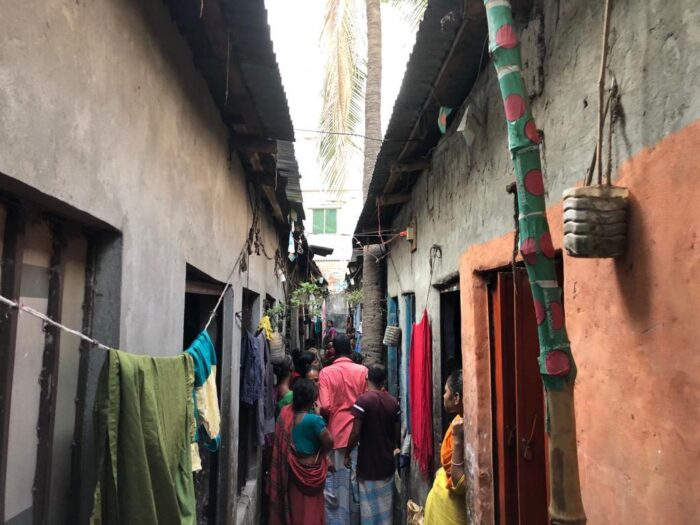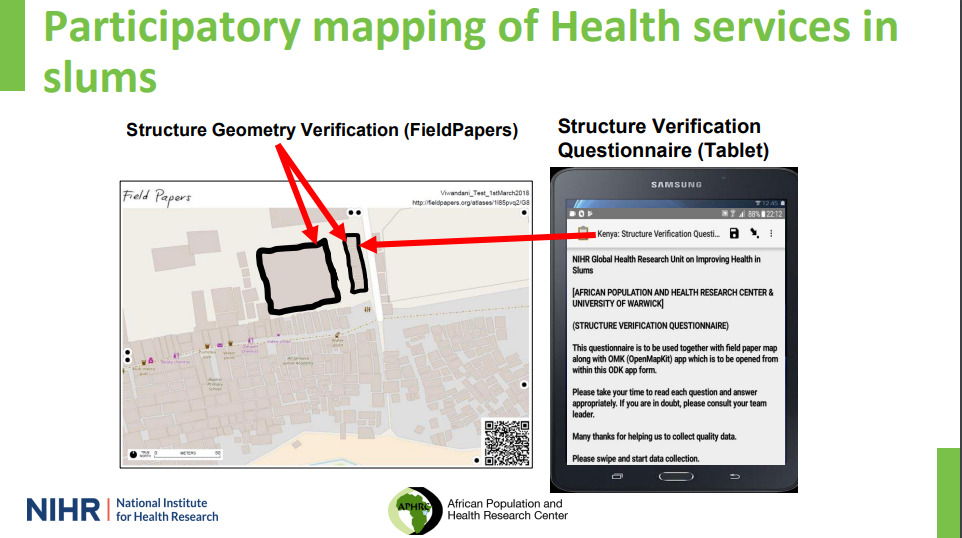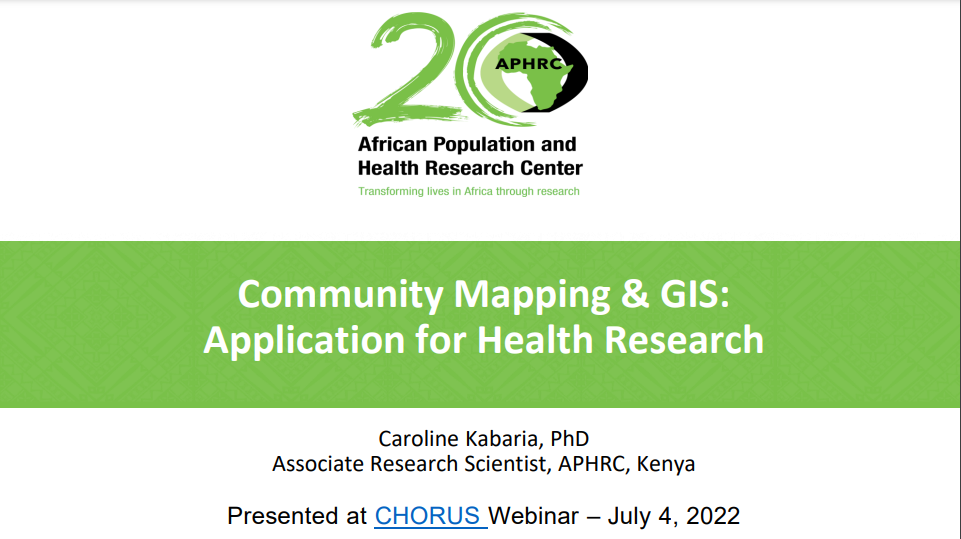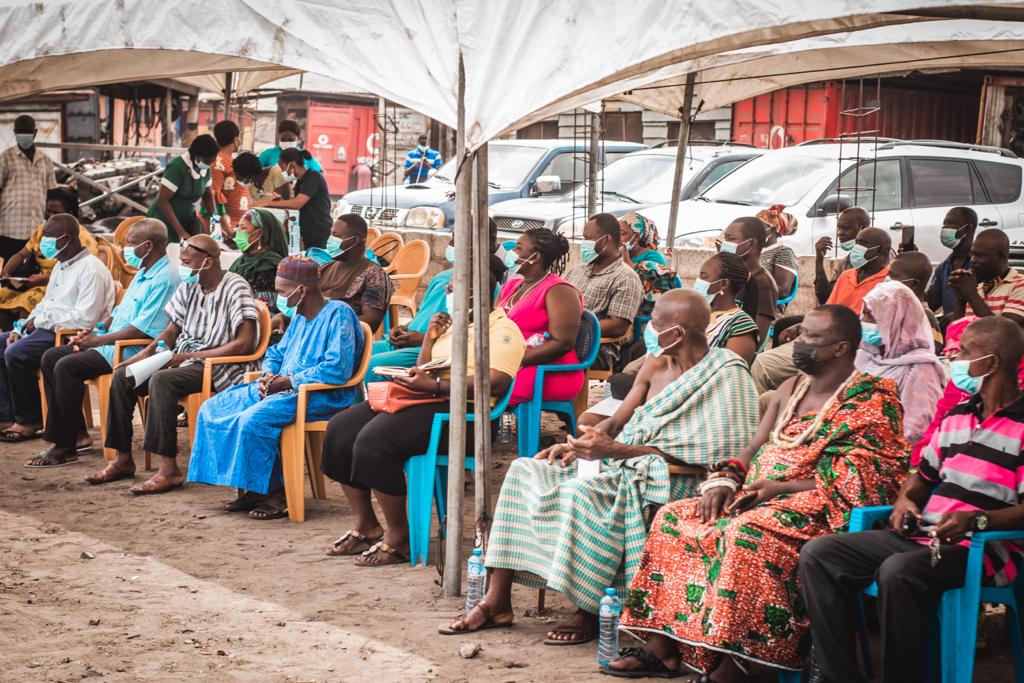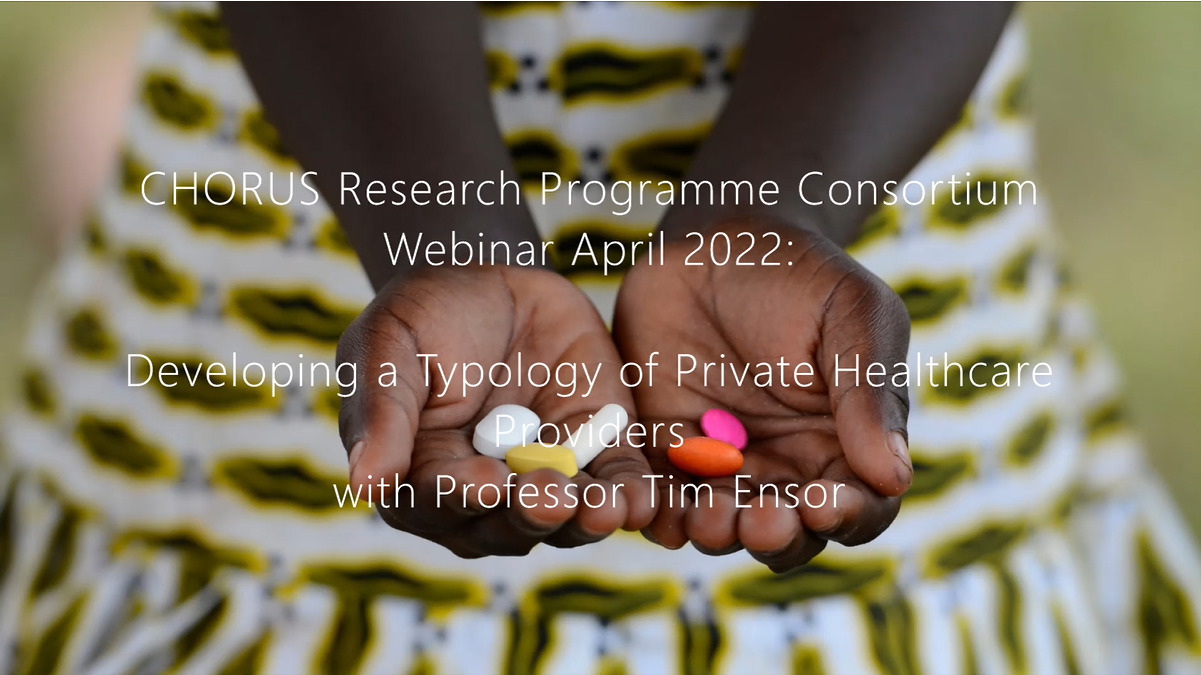Drawing on the evidence from stages 1 and 2, CHORUS teams bring the variety of stakeholders together to co-develop and shape interventions to strengthen the urban health system.
Approaches such as Participatory Action Research, with the cycles of ‘plan, act, observe and reflect’ are useful to design interventions with stakeholders, and both quantitative and qualitative methods can be used to gain feedback on intervention components from urban residents, health workers and policy makers alike.
We used intervention development frameworks such at the 6SQUID framework, to help define the problem and its causes, clarify influencing factors and develop theories of change. The engagement of stakeholders in the development and implementation of initiatives helps ensure interventions meet the needs of local populations whilst also fitting within current systems and policy frameworks. However ensuring engagement is meaningful and inclusive of all perspectives requires deep knowledge of the context and must be done through careful consensus building.



